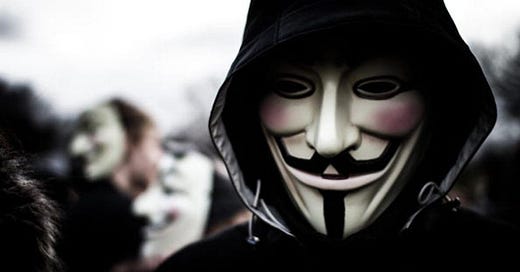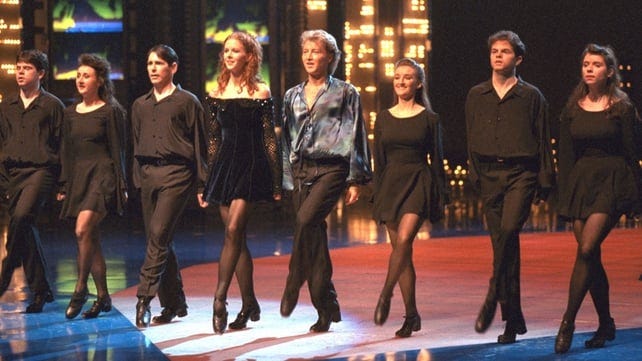In writing about the release of the latest update to Cochrane’s ‘Physical interventions to interrupt or reduce the spread of respiratory viruses’ last week, I expressed the hope that we could move on from the topic of masks. Cochrane, with their unimpeachable reputation, had so emphatically demonstrated the overwhelming lack of evidence for masking that I imagined no one could reasonably pretend anymore that masks had any benefit. Indeed, it even forced Dr. Ellie Cannon, who had argued in favour of masks in the Mail on Sunday during the pandemic, to concede that she was mistaken.
Of course, this acceptance was not universal. Beliefs based on faith can often be hard to let go. First, we had “social psychologist, bestselling author, award-winning Harvard lecturer, and acclaimed keynote speaker,” Amy Cuddy using her Twitter account with 100k+ followers to counter the Cochrane Review (a meta-analysis of 78 Randomised Controlled Trials (RCTs) by a body considered to produce the gold standard in evidence-based health care) with a single observational study based on a five month period in 2020 and which collected much of its data from that august simian institution, SurveyMonkey.
We also had this remarkable nineteen-tweet thread by epidemiologist, Jennifer Nuzzo, who managed to acknowledge the pre-eminence of Cochrane Reviews and concede its negative results on masking but then, rather embarrassingly, posit that maybe masks still do actually work because “absence of evidence is not evidence of absence.” In other words, even though a thorough analysis of all the high-quality evidence in the form of 78 RCTs shows nothing to support masking as a means to stem viral transmission, they might still work because…well…who knows? On this basis, the absence of evidence to support wearing tap-dancing shoes to stop Covid transmission shouldn’t rule out launching into a performance of Riverdance every time there’s a surge in cases.
This unwillingness to accept reality, however, was not the most significant thing to come out of the aftermath of the Cochrane Review. That was, undoubtedly, Maryanne Demasi’s interview with the Cochrane Review’s lead author, Tom Jefferson. It is full of illuminating quotes, such as his criticism of governments around the world who ignored the evidence on masking when introducing mandates.
“Governments completely failed to do the right thing and demand better evidence…(They) had bad advisors from the very beginning... They were convinced by non-randomised studies, flawed observational studies. A lot of it had to do with appearing as if they were ‘doing something.’”
It’s refreshing to see this stated so bluntly by someone whose words carry such weight. The Governments were wrong. Their advisors were wrong. There was never any good evidence to support masking.
However, the most significant quote from Jefferson is this one, where he actually criticises Cochrane for delaying a previous version of the review.
In early 2020, when the pandemic was ramping up, we had just updated our Cochrane review ready to publish…but Cochrane held it up for 7 months before it was finally published in November 2020.
Those 7 months were crucial. During that time, it was when policy about masks was being formed. Our review was important, and it should have been out there.
In other words, the Cochrane Review, which clearly showed that masks were likely to do nothing to stem Covid transmission, was ready to go around April 2020 just when the first Governments were beginning to legally force their populations to wear masks. Had it been released at that point, so much of what followed might have been different. Maybe 2 year olds in the US might not have been forced to wear them all day in school. Maybe OAPs in Ireland might not have been sent to jail for failing to mask in a supermarket.
When pressed as to the reason Cochrane might have delayed the publication of the review at this crucial point, Jefferson did not equivocate.
DEMASI: Do you think Cochrane intentionally delayed that 2020 review?
JEFFERSON: During those 7 months, other researchers at Cochrane produced some unacceptable pieces of work, using unacceptable studies, that gave the “right answer”.
DEMASI: What do you mean by “the right answer”? Are you suggesting that Cochrane was pro-mask, and that your review contradicted the narrative. Is that your intuition?
JEFFERSON: Yes, I think that is what was going on. After the 7-month delay, Cochrane then published an editorial to accompany our review. The main message of that editorial was that you can't sit on your hands, you’ve got to do something, you can't wait for good evidence…. it's a complete subversion of the ‘precautionary principle’ which states that you should do nothing unless you have reasonable evidence that benefits outweigh the harms.
DEMASI: Why would Cochrane do that?
JEFFERSON: I think the purpose of the editorial was to undermine our work.
DEMASI: Do you think Cochrane was playing a political game?
JEFFERSON: That I cannot say, but it was 7 months that just happened to coincide with the time when all the craziness began, when academics and politicians started jumping up and down about masks. We call them “strident campaigners”. They are activists, not scientists.
Let us talk about conspiracy for a moment. To believe in a ‘Conspiracy’ - that is, in a secret plan to achieve a devious end - is to be a ‘Conspiracy Theorist’, which today is akin to being nothing less than a dangerous lunatic. The term has been so demeaned and loaded with invective that any appeal to it is enough to instantly shut down most debates. Yet, conspiracies can and do happen.
In 1975, the UK constabulary conspired to convict six Irishmen for the bombing of two pubs leading to the deaths of 21 people. The ‘Birmingham Six’ each served sixteen years in prison before their convictions were overturned in 1991. At their original trial, the Judge commented on the scale of conspiracy required if the defendants were, as they claimed, innocent:
“Consider the scale of the conspiracy of those involved, it ranges does it not, from detective constables and police constables right up through the police hierarchy.”
There’s that word: conspiracy, used by a member of the Crown’s Judiciary before it went out of fashion. Even though he thought it unlikely, what he described in 1975 - a sophisticated conspiracy to convict innocent men - turned out to be exactly the case.
And now we have another example because, to be blunt, the words of Prof. Jefferson above describe nothing less than a full blown conspiracy to suppress the true data regarding masks at the exact time policies around masking were being formulated. Such a conclusion is supported by two further pieces of evidence.
Firstly, we have the words of BBC Health Correspondent, Deborah Cohen, who in 2020 reported from various sources that the WHO Committee reviewing the evidence for masks had not backed them but officially recommended them anyway due to political lobbying.
Secondly, we have the suppression of the DANMASK-19 study which completed in the summer of 2020. This study was the first RCT conducted after the Pandemic began and the first to focus entirely on SARS-CoV-II (as opposed to previous RCTs which focused on influenza and influenza-like illnesses). It, therefore, carried some serious weight and, like the Cochrane Review, its results showing no benefit to masking were ready for publication just as mandates and policies around masks were being cemented in society. Furthermore, also just like Cochrane, it too was held up and delayed until November.
As the world waited and waited for the DANMASK-19 results to be published, one reporter contacted the authors to ask when it might be expected. The answer, when it came, was shocking.
“As soon as a journal is brave enough to accept the paper.”
The study, with its unfavourable result, could find no journal to publish it. It eventually limped into print towards the end of the year. Like the Cochrane Review, it showed up too late to stop the party.
We have, thus, arrived at a position where it is impossible to avoid using the forbidden term. All the evidence, from the suppression of both Jefferson’s Cochrane review and the DANMASK-19 trial to the WHO’s political decision to switch from acknowledging the lack of evidence for masks to suddenly recommending them, speaks of a deliberate and directed conspiracy incorporating the political and medical spheres to promote masking throughout society and actively suppress high-quality data that contradicted it. This conspiracy was specifically targeted at that time period in which masking policies and enforced mandates were being formulated to ensure their success and to quell any dissent.
And, of course, it worked. Faces across the world disappeared one by one as a billion masks were drawn across a billion faces and held in place there with threats and intimidation. In Ireland, in September 2020, an Irish DJ was even forced to cancel her “open discussion” on face masks after she was accused of promoting “fascism” and giving “loons a platform”. “There is no debate on masks”, said one RTE journalist who was presumably trying to make an erroneous point about the perceived efficacy of masks but accidentally made a far more astute one about the very censorship she was encouraging.
Three years later, we know all this was a lie - both the masks themselves and also the censorship - something that traditionally has far more in common with fascism than attempts at open discussion. But what’s more is that we now know it was part of a real conspiracy.
It may be a bad word but, unfortunately in this case, conspiracy is also an accurate one.







